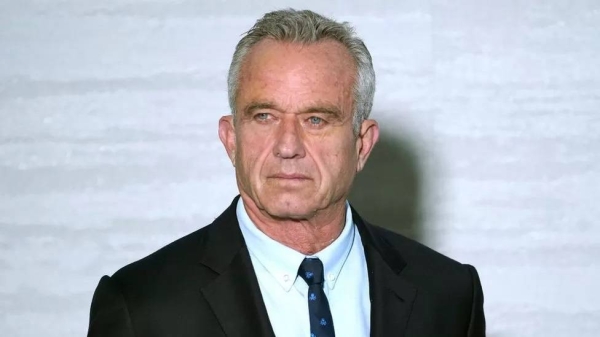
An article by Toby Young for the Daily Telegraph was “significantly misleading” when it said that catching a cold could protect people from coronavirus and claimed that London was approaching herd immunity, the press regulator has ruled.
In a decision published on Thursday, Ipso’s complaints committee ordered the Telegraph to publish a correction over the column, which was published in July last year under the headline: “When we have herd immunity Boris will face a reckoning on this pointless and damaging lockdown.”
The comment piece, which is no longer available on the Telegraph website, claimed that some people “will have a natural immunity because they’ve already successfully fought off other coronaviruses, such as the common cold” and that “people in [this] category will be immune”.
The newspaper argued that Young was referring to “cross-reactive T-cells”, which were not mentioned in the article. But a complainant said that such T-cells “may lessen the impact of Covid-19 but would not confer ‘natural immunity’”.
Ipso concluded that the Telegraph was unable to support its position and that it had “failed to take care not to publish inaccurate and misleading information”.
“The statement was significantly misleading,” it said, noting that the Telegraph had not offered to run a correction. “It misrepresented the nature of immunity and implied that people previously exposed to some common colds might be automatically immune to suffering symptoms and passing on Covid-19 to others.”
Ipso also found that Young’s claim that “London is probably approaching herd immunity, even though only 17% tested positive [for antibodies] in the most recent seroprevalence survey” was misleading.
Challenged on the claim, the Telegraph referred to an article on Young’s own Lockdown Sceptics website. But the Ipso committee said that the studies ultimately relied on for the claim did not support its conclusion that London was close to herd immunity, and ruled that the article “was misleading both as to how herd immunity is reached and whether it existed in London”.
The ruling said there had been no breach of the Ipso code on two other points but upheld the complaint, saying that it “considered that the article contained multiple breaches of clause 1 on a topic of public importance”.
It said that a correction was appropriate rather than a more severe sanction because of the level of scientific uncertainty at the time of publication.
Young, one of the most prominent critics of lockdowns as a response to the pandemic, admitted last week that he had “got that wrong” when he wrote last June that “the virus has all but disappeared”.
He has continued to argue strongly against lockdowns and on Wednesday called news coverage of the growing death toll from the virus “hysterical”. His Free Speech Union group also made an unsuccessful attempt to judicially review Ofcom’s role in regulating misinformation about coronavirus.
After Young deleted all of his tweets from before 6 January, the Conservative MP Neil O’Brien tweeted a thread of claims he had made, noting, among other examples, a piece for the Spectator in August which claimed: “As we sceptics are fond of pointing out, almost no one has the virus any more.”












